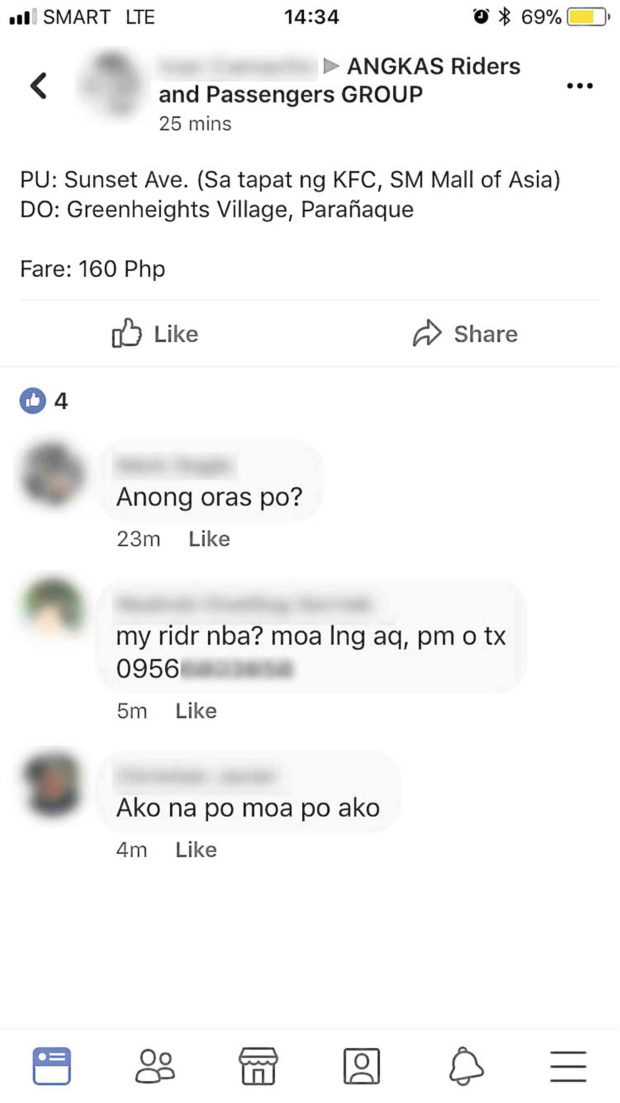
A newly formed commuters advocacy group called on the government on Wednesday to consider legalizing and regulating the operation of motorcycles for public transport following the proliferation of Facebook groups that offer such a service, also known as “habal-habal.”
According to Transport Watch convener Noemi Dado, the group had monitored over the last six months various “underground” motorcycle ride-sharing groups on Facebook, with drivers charging fares.
Dado noted the lack of transparency and accountability mechanisms involved in the transactions being offered, “compromising” rider safety.
She also pointed out members of a ride-sharing group, numbering up to 200,000, are not allowed to post negative feedback about the rides. They are also required to delete their request each time they are able to get a ride, Dado added.
Transport Watch coconvener George Royeca warned that since there are no records of the trips, commuters have no recourse should they get involved in a road accident or fall prey to criminals during the ride.
Under Republic Act No. 4136, or the “Land Transportation and Traffic Code,” motorcycles couldn’t be used to transport passengers for a fee. This was the basis of the Land Transportation Franchising and Regulatory Board (LTFRB) when it ordered last year the closure of motorcycle ride-sharing provider Angkas.
Despite the announced closure, however, the Angkas Riders and Passengers Group continued to be active on social media.
Group shutdown
Sought for comment, LTFRB board member Aileen Lizada said the agency would coordinate with Transport Watch to help them determine all of the motorcycle groups on Facebook that are illegally offering their services nationwide.
She noted that they will also seek the assistance of the Department of Information and Communications Technology as well as Facebook to shut down these groups.
Lizada added that these motorcycles would also be included in anticolorum operations of the newly created interagency group, “Task Force Kamao.”
But Royeca said shutting down the Facebook pages won’t make the problem go away, as officials should understand that the use of habal-habal has become popular throughout the country due to the lack of transport options. Hence, it has become the only alternative especially in poor commuters.
Unless Congress comes out with new legislation amending the law that bans the motorcycle as a public utility vehicle, Lizada stressed that it is illegal to use it as a public transport as its safety could not be assured.
Dado said Transport Watch was in talks with at least four lawmakers to revisit the country’s “antiquated” transport laws to address the need for inclusive mobility and resolve issues that mostly affect the poor.